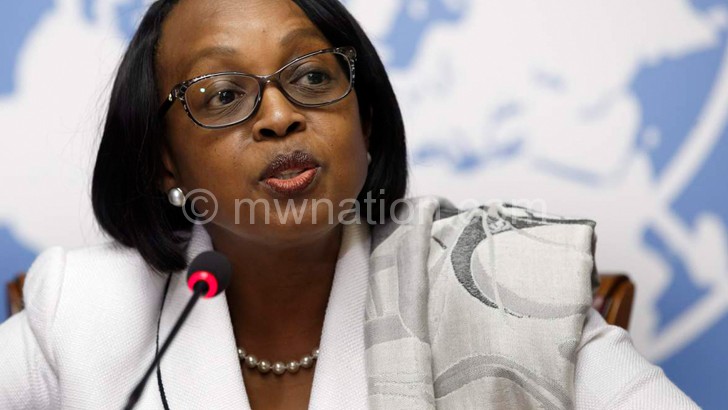WHO launches project to control, eliminate NTDs in Malawi
World Health Organisation’s Regional Office for Africa (WHO-Afro) has launched a new partnership to help African countries, including Malawi, reduce the burden of neglected tropical diseases (NTDs).
The Expanded Special Project for Elimination of Neglected Tropical Diseases (Espen), was launched on Monday at an event which took place on the sidelines of the 69th Annual World Health Assembly in Geneva.
In a statement released by WHO, Dr. Matshidiso Moeti, WHO-Afro director, said she was excited to launch Espen to scale up the work against NTDs.

“We know what needs to be done to beat NTDs. Espen will make sure national NTD programmes have the data, expertise and financial resources they need to accelerate the fight against these diseases,” said Moeti.
Espen will run from 2016 to 2020, and is designed to continue momentum toward the control and elimination targets established by WHO and endorsed in the London Declaration on NTDs in January 2012.
In 2014, Malawi Government and 25 other African countries committed to strengthen their commitment to NTDs under the Addis Ababa Commitment on NTDs.
Then Minister of Health Jean Kalilani endorsed the Addis Ababa NTD Commitment and promised to increase domestic investment, promote multi-sector approaches, encourage adoption of long-term strategic plans and ensure mutual support of NTD programmes.
One of the multi-sector approaches was for the ministries of Health and Education to administer a joint programme to protect schoolchildren against intestinal worms and that government includes NTDs in its Health Sector Strategic Plan 2011-2016, among other things.
In the fight against trachoma, one of the NTDs, Malawi took part in a three-year Global Trachoma Mapping Project which mapped out the disease’s prevalence across the country. 100 million people around the world are at risk of blindness due to trachoma.
According to the statement, Espen will work with the NTD control programme in Malawi to fill a major gap in the fight against these diseases, equipping the programme with technical and fundraising support.
“However, Espen alone won’t be enough to eliminate these diseases. Greater financial and political commitment from governments is necessary. Espen will work to help secure this increased support, but it’s also up to countries to make NTDs a priority,” reads the statement.
Last week, new data was released showing that Malawi could save $415 million (about K290.5 billion) between 2011-2030 if it meets the WHO 2020 targets for controlling or eliminating the five most common NTDs.
The data, developed by Erasmus University with support from the Bill & Melinda Gates Foundation, was released on the sidelines of the World Economic Forum on Africa in Kigali, Rwanda.
The data also notes that the country could avert the equivalent of over 1.9 million years of life that would have otherwise been lost to ill health, disability and early death.
As of 2010, Malawi was affected by all five of the most common NTDs, including elephantiasis, river blindness, bilharzia, intestinal worms and trachoma.
It is expected that Espen will be providing national NTD programmes with technical and fundraising support to help control and eliminate the five NTDs with the greatest burden on the continent, which collectively affect millions of people.





